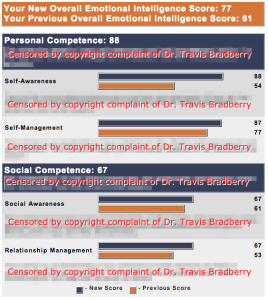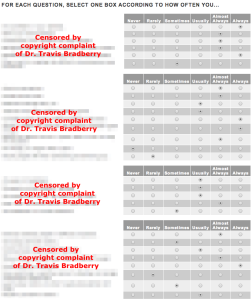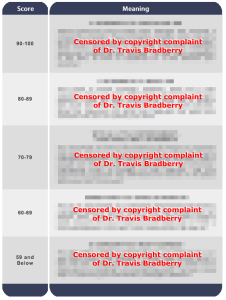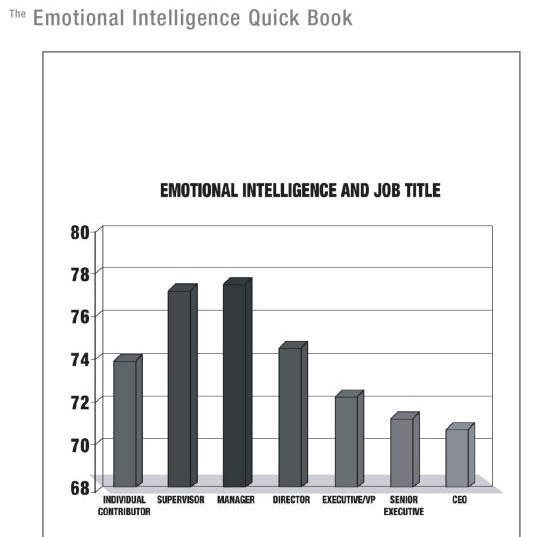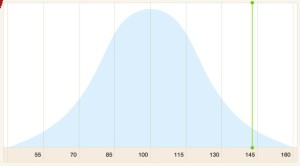 Emotional intelligence (EQ) is considered to be much more important than usual intelligence metrics, such as IQ. We use IQ only to solve logical problems. And we use EQ to solve every other problem we meet in our life: at work, at home, in family, with friends, on the streets, so on. This is EQ that defines our everyday behavior, not IQ.
Emotional intelligence (EQ) is considered to be much more important than usual intelligence metrics, such as IQ. We use IQ only to solve logical problems. And we use EQ to solve every other problem we meet in our life: at work, at home, in family, with friends, on the streets, so on. This is EQ that defines our everyday behavior, not IQ.
Once in a while, 13 months and 13 days ago I did an EQ test. 13 months and 13 days ago my score was 61 out of 100. After 13 months and 13 days of training my EQ by observing and noticing others’ emotions, taking others’ emotions into consideration, introspecting my own thoughts and emotions, so on, I’ve ended up with 77 out of 100.
Legend: blue — 2014; orange — 2013.
It is worth mentioning that there are lot of doubts on how they calculate the score. Here is what they ask to measure your EQ:
There are no hundreds of questions or problems to solve as in IQ tests. There are no dishonesty detection tricks. There are no protection against short-time influences and uncertainties in the answers. Just a few simple questions, with answers obviously dependent on your current mood and emotional state. The whole test looks over-simplistic. I don not know how someone can ever take this test seriously to measure people’s ability to succeed in life.
Despite of the test’s naiveness and irrelevance, after a year of purposeful “training”, my EQ score has became much better. And this increase reminds me of a statistical chart from a book on EQ I’ve briefly read over a year ago when I had heard of EQ for the first time:
This wonderful chart says that more successful people — CEOs, VPs and other senior executives — have lesser EQ score than regular managers and office workers.
So it seems that lower EQ is better for you. At least the real world of business shows that people, who are able to succeed, to build their own businesses from scratch, or to manage departments of huge corporations (and also to get these C-level positions), have lesser EQ.
Maybe, higher EQ is good for subordinates, as it allows them to obey without damaging their mind or hurting their feelings. Maybe, higher EQ helps to handle boring routine tasks, which are usual for middle-management. Maybe, higher EQ as as a criterion of one’s effectiveness is a lie, and there is no cake at all.
As for me, I plan to become an IT-entrepreneur (a “startuper”, according to modern dictionary), or to grow as CTO, but definitely not as regular middle manager. So I am now confused with my significant performance on EQ — is it an indicator that I move away from my goal of being a CEO?
Are there any evidences that higher EQ helps tops to do their job better? Does higher EQ help to become a top-manager? Or maybe I should better intentionally “degrade” my emotional superiority?
Nevertheless, I do not care. I just do not believe that some metrics can affect one’s success. I do believe that the one and only way to success is hard work. And that the one and only criterion of one’s ability to succeed is never-ending self-education. If you educate yourself and work hard, you are doomed to succeed.
PS: By the way, my IQ is 143. That is high above average. Yet it does not help much (actually, at all) in everyday life.
